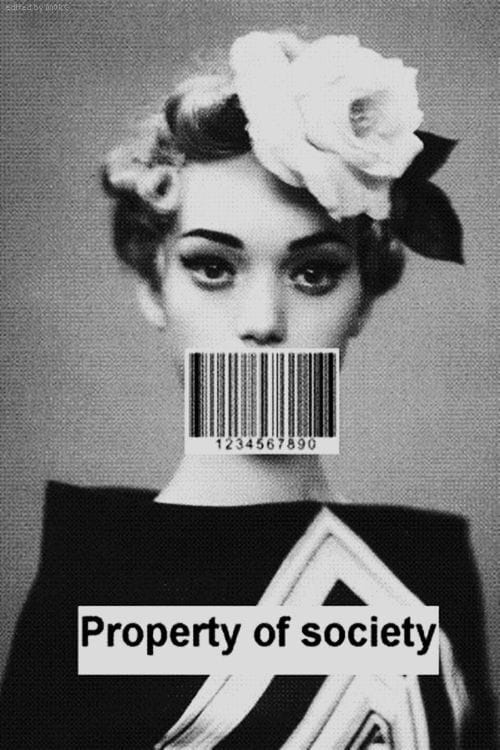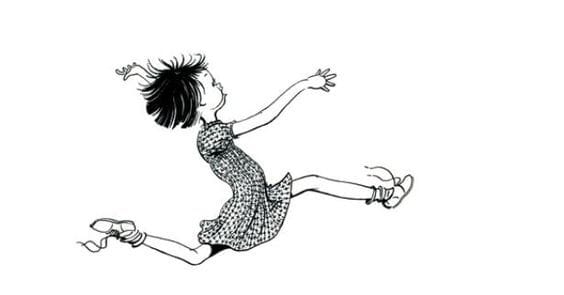You’re reading How to Live—an inquiry into the psychological forces that shape us, and how to stop being run by them.
Through deep research, personal storytelling, and hard-won insight, I challenge the myth of normalcy and offer new ways to face old struggles.
This work is reader-supported. If it speaks to you, consider a paid subscription for deeper insight, off-the-record writing, and seasonal in-person gatherings.
You can also donate any amount.
6 Norms You Don’t Have to Meet
I’m preoccupied with challenging the norms and arbitrary measures society deems worthy.
Our culture reveres the wrong things, prioritizing capital over community, hierarchy over equality, and individualism over the collective good. We overpay the wrong people and deny those who most need our support.
I take deep, personal offense that those who "fail" to live according to a random set of conditions get penalized by society, rewarding only those who comply with outdated systems and notions of achievement.
This narrow framework limits growth, potential, and freedom, valuing a fixed linearity for success marked by random external measures. It insists there is only one right way to be a person and penalizes those who don’t fit.
Many people are miserable because they lack the external markers of success.
They are trapped inside the tyranny of the "should." They should be happy but aren’t; they should be married but are single; they should be wealthy but are struggling. These egregious "shoulds" convince people they’re doing life wrong and are failures.
Our beliefs are formed slowly, over time, through the lens of those who raised us. Many of us carry this view forever, without ever considering whether or not we agree. We believe our worth relies on external metrics rather than internal value measures.
But what if we stopped and questioned everything we were raised to believe? What if we asked ourselves: Maybe I’m miserable because I’m measuring myself against norms I disagree with?
It’s time to take stock of the values our culture considers worthy and weigh them against those we feel worthy, then see which list rewards and which list punishes.
This was a fun post to write because it’s about six universal norms we often believe we should adhere to, despite a misalignment with our authentic selves and not serving our well-being. While I’m for many things, smashing norms is the most FOR thing I am.
1. ALWAYS BE BUSY & PRODUCTIVE

Unknown
Norm: There's a cultural glorification of busyness and productivity, equating one’s worth with activity level and accomplishments. However, constant production leads to stress, overwhelm, self-deprivation, and neglect. The norm of constant productivity has become our modern-day albatross. Our incessant need to produce and our belief in powering through has led to an epidemic of chronic illness.
Origin: We can trace this norm back to the Industrial Revolution. As factories emerged, time became commodified. The invention of the clock and the spread of "clock time" meant that workers' hours could be measured and monetized.
Frederick Winslow Taylor's inhumane "scientific management theory" in the early 1900s emphasized efficiency, treating workers like machines. This mentality seeped into broader culture, intensified by the Protestant work ethic that viewed hard work as a moral virtue and idleness as a sin.
How it Backfires: This norm conditions us to equate rest with laziness, making us feel worthless when we’re unproductive. The irony is that the relentless pursuit of productivity leads to burnout, decreased overall productivity, and a hollowing out of life's simpler pleasures.
HOW TO SMASH IT: We can all take a note from writers, and remember that life is in the details; the small moments which we overlook in our rush to get shit done.
We are offered a limited, non-renewable resource that can’t be recovered once it's spent: TIME, and we waste it. We pay attention to the loudest, most dramatic, and miss the quiet moments filled with small intimacies: a tree’s vulnerable tremble, a dog’s wailing song for sirens, the homesick smell of an outdoor barbecue.
We must slow down, engage, and wonder at it all to take back our agency. We must recognize that the world is both good and terrible, and our overall well-being relies on making choices that foster our inner lives, nourish our souls, and heed the call of our internal values.
2. MAKE MORE, BE MORE, GET MORE.

Ramona by Alan Tiegreen
Norm: Our society's fixation on material possessions has led to an epidemic of compulsive shopping, hoarding, and equating ownership with worth. Our constant pursuit to upgrade our gadgets, property, lives and wardrobes means we wind up living as much at home as we do in landfills.
Origin: Blame it on the media! The rise of television in the 1950s brought advertising into homes, creating new desires and inventing problems one could only solve by buying products no one needed. Worse yet, products were (and are) designed to break easily, or to go out of style quickly, as part of a widely recognized concept called planned obsolescence, which continues today and ensures the constant, wasteful cycle of buying and replacing goods.
How it Backfires: When we can’t afford what we want, and what everyone else has, we feel inferior, inadequate, and suffer from social exclusion. The pursuit of having to offset feeling the emotional agony of not having can lead to financial stress, environmental degradation, and a gnawing sense that no amount of stuff will ever be enough.
HOW TO SMASH IT: When choosing between an experience and a product, choose the experience. When we focus on shared or solo adventures, we place relationships at the center, enriching our social and spiritual lives, leading to personal growth and meaningful interactions. When we align our lives according to our deeper values, it contributes to a deep sense of purpose.
3. ACHIEVING MILESTONES BY A CERTAIN AGE

Norm: Society's expectation to achieve certain life milestones by specific ages creates unnecessary pressure and anxiety, can lead to rushed decisions, and a sense of failure if one's life doesn't follow the expected timeline. When we marry to have children, when we have children to offset a fear we’ll regret not having them, as everyone reminds us will happen, we have fallen into a trap.
Origin: This norm is influenced by a variety of factors, from the Industrial Revolution’s time-structuring approach to life and work, the system of standardizing education into age-related milestones, psychological concepts like life stage theories that prescribe a specific timeline for life events such as education, marriage, and parenthood, and more.
How it Backfires: Feeling "behind" or inadequate if life doesn't follow the expected timeline. (👋🏼.)
Life is unpredictable, and following a rigid timeline can cause unnecessary stress and lead to rushed decisions. Everyone's path is unique, and comparing yourself to others can be harmful.
HOW TO SMASH IT: Allowing yourself the flexibility to achieve milestones at your own pace respects your path and personal growth. Valuing progress over perfection and appreciating your unique style of life leads to greater satisfaction and fulfillment.
We must account for and respect our differences, like personal histories, mental illness, financial struggles, parental neglect, and adverse life experiences. We don’t all start from the same point and aren’t all helped to succeed.
4. COMPARISON WITH OTHERS’ ACHIEVEMENTS
Norm: Constantly comparing oneself to others is a pervasive norm fueled by competitive societal structures amplified by social media. All told, it creates an environment where self-worth is measured against others' successes, and those “successes” are only shown when they’re camera-ready.
Origin: This norm arises from competitive societal structures and is intensified by social media, where people often showcase their achievements.
How it Backfires: Feeling inadequate when others appear more successful or happier can lead to decreased self-esteem and mental health issues. Everyone's path is different, and comparisons are almost always misleading and harmful. We pair stories to match the images we’re shown and then compare ourselves to that fiction.
HOW TO SMASH IT: We need to reframe what success means. Does it mean having power and money, or does it mean overcoming hardship? Does it mean having the most friends, or having two friends with whom you feel safe to share your joys and hardships?
Focusing on and defining your progress and achievements fosters self-confidence and contentment. Valuing personal growth and rewarding our efforts to overcome challenges leads to a more fulfilling and authentic life.
5. SUPPRESSING EMOTIONS TO APPEAR STRONG
Norm: Suppressing emotions to appear strong is a norm rooted in patriarchal values and stoic ideals. It encourages people, especially men, to hide their vulnerabilities and emotional struggles. When we avoid vulnerability, we hold our fear in place, remain stuck, and perpetuate the mental health stigma around having deep feelings.
Origin: This norm is influenced by patriarchal norms that equate emotional expression with weakness and by stoicism, which promotes self-control and emotional restraint.
How it Backfires: When we believe we’re weak or should feel shame when experiencing or expressing emotions, we cut off the genuine connections we need as social animals to survive and thrive.
At the same time, suppressing emotions can lead to mental and physical health issues.
HOW TO SMASH IT: Do you know the superhuman strength it takes to sit with and face the most difficult emotion? If you do, then you already know this norm is embarrassingly misguided.
There is no stronger person in the world than the one who has lived through the invisible trenches of mental anguish. Learn to value this strength, not what culture wants you to believe is strength.
6. FOLLOW A LINEAR PATH TO SUCCESS
Norm: Society often dictates that success follows a linear trajectory of education, career advancement, marriage, family, and financial stability. However, this expectation ignores individual differences, preferences, and paths a person might take, and creates undue pressure to adhere to societal norms, just so the people around them are comfortable.
Origin: The same as all the other norms on this list!
How it Backfires: A rigid path to success dictated by the culture can force an individual to overlook personal interests and unique opportunities, and lead them to be dissatisfied in life, and miss the experiences they long for.
HOW TO SMASH IT: Do you want to live your life, or a life? Do you want others to accept you based on ultimately meaningless criteria, or do you want to follow your deepest instincts and find your own true happiness?
Life is hard, and doing your own thing, on your terms, is difficult in various tangible ways, but it’s better to embrace a life that feeds your soul than to live according to arbitrary measures that feed only on your resentment.
Please leave the norms you’d like to smash in the comments (there are SO MANY MORE!)
Until next week, I will remain…

Amanda
P.S. Thank you for reading! This newsletter is my passion and livelihood; it thrives because of readers like you. If you've found solace, wisdom or insight here, please consider upgrading, and if you think a friend or family member could benefit, please feel free to share. Every bit helps, and I’m deeply grateful for your support. 💙
Quick note: Nope, I’m not a therapist—just someone who spent 25 years with undiagnosed panic disorder and 23 years in therapy. How to Live distills what I’ve learned through lived experience, therapy, and obsessive research—so you can skip the unnecessary suffering and better understand yourself.
Some links are affiliate links, meaning I earn a small commission at no extra cost to you. Every bit goes straight back into supporting this newsletter. Thank you!






 Upgrade
Upgrade